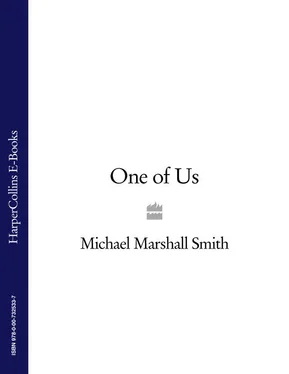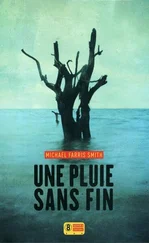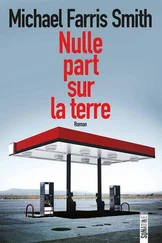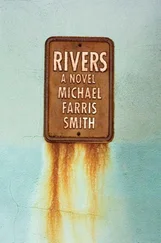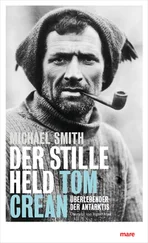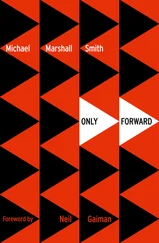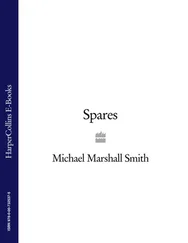Great going.
But it had evidently worked, because for the time being I was back. I started the car and pulled carefully back onto the road, after a quick mental check to make sure I was pointing in the right direction. Then I tore the filter off a Kim, lit her up, and headed South.
I only passed one other car along the way, which was good, because it meant I could drive down the middle of the road and stay as far as possible from the precipitous drops which line half the route. This left me free to do a kind of internal inventory, and to start panicking about that instead. Most of the last six hours were missing, along with a number of words and facts. I could recall where I lived, for example – on the tenth floor of The Falkland, one of Griffith's livelier apartment blocks – but not the room number. It simply wasn't available to me. Presumably I'd remember by sight: I hoped so, because all my stuff was in there and otherwise I'd have nothing to wear.
I could remember Laura Reynolds' name, and what she'd done to me. She'd evidently been with me for some of the journey down, in spirit at least: it must have been her who bought the cigarettes, though me who opened the pack. I didn't really know what she looked like, only how she appeared to herself, and I had no idea where she was. I'd probably had a good reason for heading for Ensenada, or at least a reason of some kind – assuming, of course, that it had been me who made the decision. Either way, now I was here it seemed I might as well go on.
I made good time, only having to stop once, while a herd of coffee machines crossed the road in front of me. I read somewhere that they often make their way down to Mexico. I can't see why that would be so, but there was certainly a hell of a lot of them. They came down off the hill in silence, trooped across the road in a protective huddle, and then headed off down the slope in an orderly line, searching for a home, or food, or maybe even some coffee beans.
I reached Ensenada just after midnight, and slept in the car on the outskirts of town. I dreamed of a silver sedan and men with lights behind their heads, but the message was confused and frantic, fear dancing through an internal landscape lined with doors that wouldn't open.
When I woke up more of my head was back in place, and I got it together to contact Stratten, patching the call through my hacker's network so it looked like it came from LA. I said I had a migraine and wouldn't be able to work for a couple days. I don't think he believed me, but he didn't call me on it. I spent the rest of the day fruitlessly searching taco stands and crumbling hotels, or driving aimlessly down rotting streets. By the evening this had led me to an inescapable conclusion.
She wasn't here.
From Housson's I headed straight for the street where I'd left the car. In late afternoon this particular area behind the tourist drag had seemed charmingly authentic. By mid-evening it resembled a do-it-yourself mugging emporium. Knots of alarming locals stood and stared as I passed, their feet wet from the pools of beer, urine or blood which flowed from each of the bars, but I made it back to the car in one piece. It was parked down a cul-de-sac, away from prying eyes, and it was only as I pulled my keys from out of my pocket that I realized shadows were moving on the other side of the street. The light was too patchy for me to tell who it might be, but I didn't want to meet them either way. I'm like that. Not very sociable.
Three men were soon distinguishable, heading towards me. They weren't hurrying, but that wasn't reassuring. Particularly when the glint of a tarnished button confirmed what I already suspected. Cops. Or the local equivalent, which was even worse. Could be they were just out walking their wallets, shaking down the bars; could be they'd just spotted a tourista and wanted to shake me down instead.
Or it could be that their colleagues outside Housson's had passed word to them that someone suspicious had just been hounded out of the bar by a lunatic timepiece, someone whose name had been clearly articulated. There was no reason that name should mean anything to anyone, not unless stuff had happened back in LA that I didn't know about, but I wasn't going to take any chances. I quietly opened the car door and waited, listening to the sound of their boots scuffing on the ragged road surface.
‘Hi,’ I said steadily. ‘What can I do for you guys?’
They didn't reply, but merely looked me up and down, as is the wont of such people. The third cop hung back a little, casting a glance at the licence plate of my car.
‘It's mine,’ I said. ‘The papers are in the glove compartment.’
Too late I remembered what was next to the papers and under a map. A gun. It was mine, licensed, legal – with a serial number and everything – but it would still be a very bad thing to have them find. The Baja Peninsula isn't bandit territory, but it's heading that way. Twenty years ago it had looked as if fleeing Hong Kong money might claw it up into respectability, but the cash had kept on moving, and now the dark country was taking over again, seeping down from the hills and turning the eyes of the people inwards. The cops are very keen that it's them pointing the guns at people, not the other way round.
‘Mr Thompson?’ the middle cop said. I tightened my grip on the door.
‘Yes,’ I replied. There was no point in lying. Any part of my body had it stamped there in amino acids. ‘How'd you guess? I just look like a Thompson, or what?’
‘Someone who sounds like you just had a little trouble in Housson's,’ he said, something that wasn't really a smile moving his lips. ‘With a clock.’
‘Well you know how it is.’ I shrugged. ‘They get on your nerves occasionally.’
‘I couldn't afford such a thing,’ the middle cop said. ‘Mine still runs on batteries.’
‘Probably works properly, then,’ I said, trying to be comradely. ‘And you don't have to feed it.’
‘What are you doing in Ensenada?’ the second policeman asked abruptly.
‘Holiday,’ I said. ‘Few days off work.’
‘What work?’
‘Bar work.’ Used to be true. I've done most things at one time or another. If they wanted to test me on pouring beer and making change they were welcome to it.
They all nodded together. Little, uninterested nods. The fact that this was all so chummy should have made me more relaxed. It didn't. It made me feel tense. No-one had asked me for money. No-one had asked for my papers. No-one was hunting through the cavities of my car for drugs.
So what were they doing? I hadn't done anything, after all. Not really.
Then I heard it. Very quietly at first, the sound of a car approaching in another street. Nothing exceptional about that, of course: I'm familiar with the internal combustion engine and its role in contemporary society. But I couldn't help noticing that the cop in the middle, the one who appeared to be leading this crew, glanced towards the end of the block. I followed his eyes.
Initially there was nothing to see except tourist couples walking hand in hand across the intersection, their blurred voices calling as they pointed out souvenirs to each other. For a moment I had a flash of the first time I came to Ensenada, many years ago. I remembered realizing that every bangle and every rug, every copyright infringement and Day of the Dead vignette, had been stamped out somewhere in a factory and that no-one here was selling anything unique or genuine. Realizing that, and not caring. Spending days eating fish tacos at two for a dollar, loaded high with fixings and chilli, down by the fish market where the world's most disreputable pelicans fought for scraps in a flurry of brown feathers. Cruising in the late afternoon, Country on the car stereo and Indian kids on every street corner, selling subcontracted chiclets to support their mothers' habits. And nights of shadows and distant shouting, patterns of light on water and wood fires in run-down chalets; cold breezes on the rocks at the waterfront, the warmth of someone who loved me.
Читать дальше
